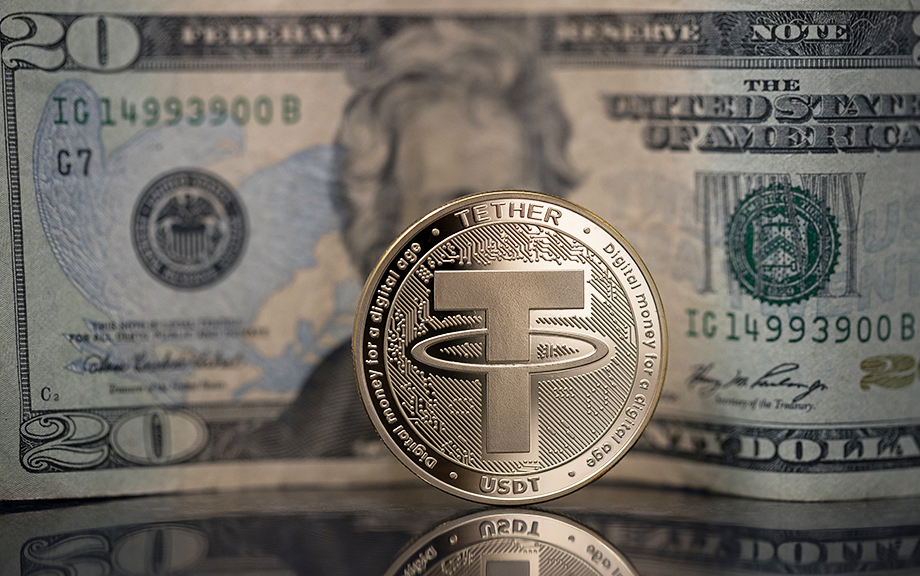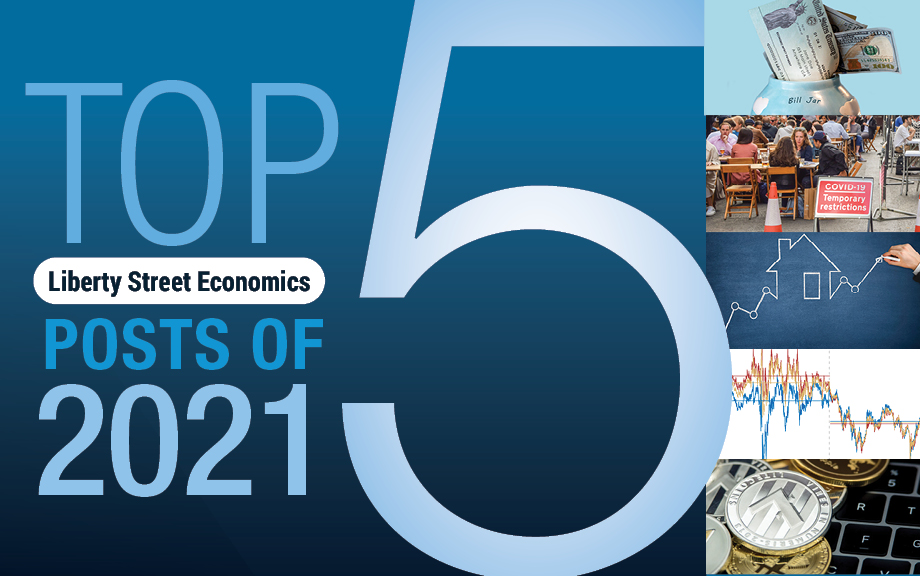Stablecoins and Crypto Shocks

In a previous post, we described the rapid growth of the stablecoin market over the past few years and then discussed the TerraUSD stablecoin run of May 2022. The TerraUSD run, however, is not the only episode of instability experienced by a stablecoin. Other noteworthy incidents include the June 2021 run on IRON and, more recently, the de-pegging of USD Coin’s secondary market price from $1.00 to $0.88 upon the failure of Silicon Valley Bank in March 2023. In this post, based on our recent staff report, we consider the following questions: Do stablecoin investors react to broad-based shocks in the crypto asset industry? Do the investors run from the entire stablecoin industry, or do they engage in a flight to safer stablecoins? We conclude with some high-level discussion points on potential regulations of stablecoins.
What Makes Cryptocurrencies Different?

Permissionless blockchains, which support the most popular cryptocurrency networks like Bitcoin and Ethereum, have shown that it is possible to transfer value without relying on centralized trusted third parties, something that is new and remarkable (although perhaps most clearly useful for less developed financial markets). What makes permissionless blockchains able to transfer value without relying on a small number of trusted third parties is the combination of several components that all need to work together. The components themselves are not particularly new, but the combination of these components is more than the sum of its parts. In this post, we provide a high-level overview of these components and how they interact, taking Bitcoin as an example.
Runs on Stablecoins

Stablecoins are digital assets whose value is pegged to that of fiat currencies, usually the U.S. dollar, with a typical exchange rate of one dollar per unit. Their market capitalization has grown exponentially over the last couple of years, from $5 billion in 2019 to around $180 billion in 2022. Notwithstanding their name, however, stablecoins can be very unstable: between May 1 and May 16, 2022, there was a run on stablecoins, with their circulation decreasing by 15.58 billion and their market capitalization dropping by $25.63 billion (see charts below.) In this post, we describe the different types of stablecoins and how they keep their peg, compare them with money market funds—a similar but much older and more regulated financial product, and discuss the stablecoin run of May 2022.
Is There a Bitcoin–Macro Disconnect?

Cryptocurrencies’ market capitalization has grown rapidly in recent years. This blog post analyzes the role of macro factors as possible drivers of cryptocurrency prices. We take a high-frequency perspective, and we focus on Bitcoin since its market capitalization dwarfs that of all other cryptocurrencies combined. The key finding is that, unlike other asset classes, Bitcoin has not responded significantly to U.S. macro and monetary policy news. This disconnect is puzzling, as unexpected changes in discount rates should, in principle, affect the price of Bitcoin.
Can Decentralized Finance Provide More Protection for Crypto Investors?

Several centralized crypto entities failed in 2022, resulting in the cascading failure of other crypto firms and raising questions about the protection of crypto investors. While the total amount invested in the crypto sector remains small in the United States, more than 10 percent of all Americans are invested in cryptocurrencies. In this post, we examine whether migrating crypto activities from centralized platforms to decentralized finance (DeFi) protocols might afford investors better protection, especially in the absence of regulatory changes. We argue that while DeFi provides some benefits for investors, it also introduces new risks and so more work is needed to make it a viable option for mainstream investors.
What Is Atomic Settlement?

Distributed ledger technologies (DLTs) have garnered growing interest in recent years and are making inroads into traditional finance. One purported benefit of DLTs is their ability to bring about “atomic” settlement. Indeed, several recent private sector projects (SDX, Fnality, HQLAx) aim to do just that. But what exactly is atomic settlement? In this post, we explain that atomic settlement, as it is often defined, combines two distinct properties: instant settlement and simultaneous settlement, which should be kept separate.
The Future of Payments Is Not Stablecoins

Stablecoins, which we define as digital assets used as a medium of exchange that are purported to be backed by assets held specifically for that purpose, have grown considerably in the last two years. They rose from a market capitalization of $5.7 billion on December 1, 2019, to $155.6 billion on January 21, 2022. Moreover, a market that was once dominated by a single stablecoin—Tether (USDT)—now boasts five stablecoins with valuations over $1 billion (as of January 21, 2022; data about the supply of stablecoins can be found here). Analysts have started to pay increased attention to the stablecoin market, and the President’s Working Group (PWG) on Financial Markets released a report on stablecoins on November 1, 2021. In this post, we explain why we believe stablecoins are unlikely to be the future of payments.
Stimulus, Savings, and Inflation: The Top Five Liberty Street Economics Posts of 2021

New York Fed researchers tackled a wide array of topics on Liberty Street Economics (LSE) over the past year, with the myriad effects of the pandemic—on supply chains, the banking system, and inequality, for example—remaining a major area of focus. Judging by the list below, LSE readers were particularly interested in understanding what comes next: the most-viewed posts of the year analyze households’ use of stimulus payments, the implications of lockdown-period savings, the risk of a new housing bubble, the compression of the breakeven inflation curve, and the potential roles that central banks could play in the digital currency sphere. As the year draws to a close, take a look back at the top five posts of 2021.
Why Central Bank Digital Currencies?

In the past year, a number of central banks have stepped up work on central bank digital currencies (CBDCs – see map). For central banks, are CBDCs just a defensive reaction to private-sector innovations in money, or are they an opportunity for the monetary system? In this post, we consider several long-standing goals of central banks in their support and provision of retail payments, why and how central banks tackle these issues, and where CBDCs fit into the array of potential solutions.
Monetizing Privacy with Central Bank Digital Currencies

In prior research, we documented evidence suggesting that digital payment adoptions have accelerated as a result of the pandemic. While digitalization of payment activity improves data utilization by firms, it can also infringe upon consumers’ right to privacy. Drawing from a recent paper, this blog post explains how payment data acquired by firms impacts market structure and consumer welfare. Then, we discuss the implications of introducing a central bank digital currency (CBDC) that offers consumers a low-cost, privacy-preserving electronic means of payment—essentially, digital cash.










 RSS Feed
RSS Feed Follow Liberty Street Economics
Follow Liberty Street Economics